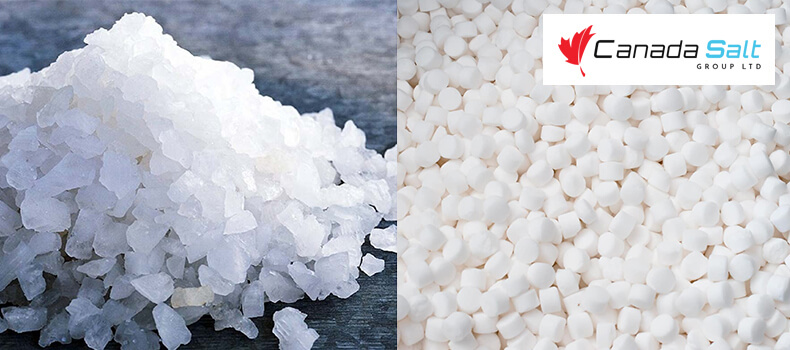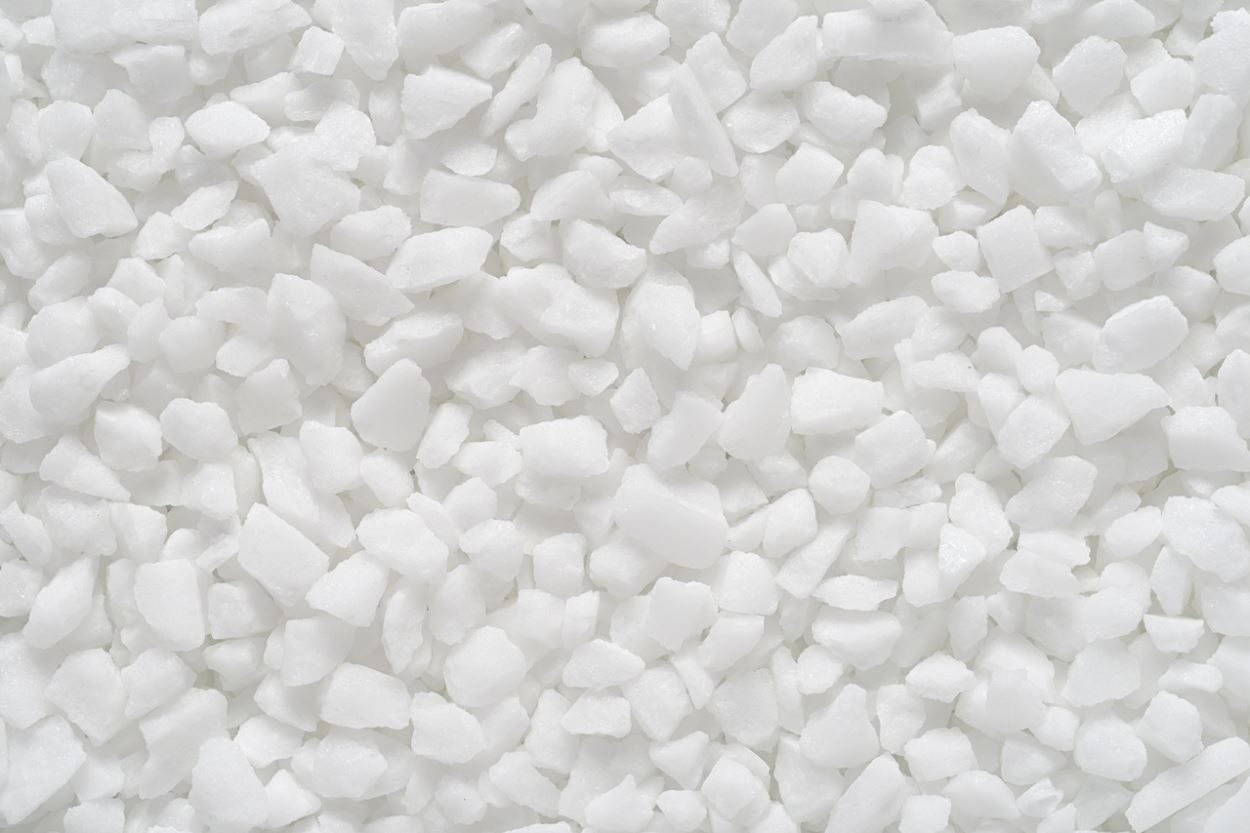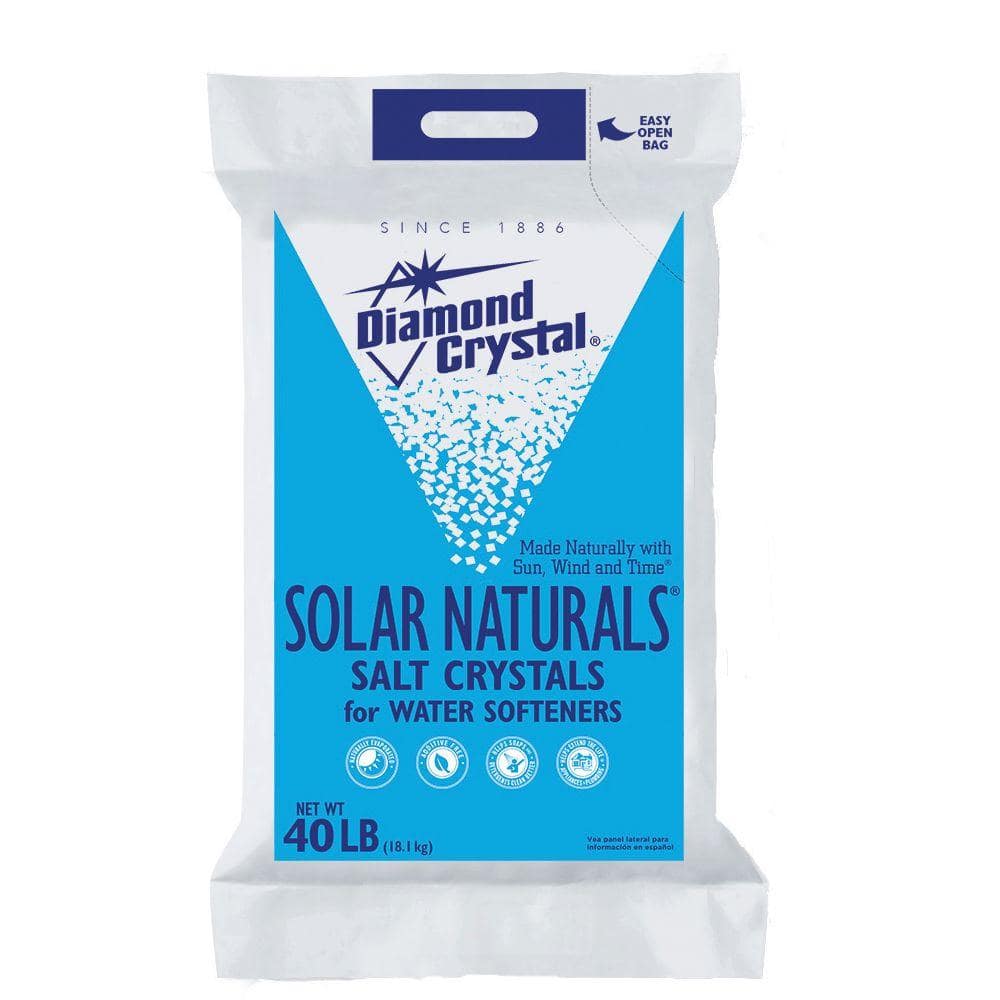Are you puzzled by the difference between pool salt and water softener salt? You’re not alone.
Many people face this confusion when trying to maintain their pools or improve their home’s water quality. It’s easy to assume these salts can be used interchangeably, but that could lead to costly mistakes and even damage your equipment. Understanding the distinct characteristics and uses of each type of salt can save you time, money, and headaches.
We’ll break down the essential differences, helping you make informed decisions for your home and lifestyle. Get ready to dive into a sea of clarity and ensure your pool sparkles and your water feels softer than ever.
Composition
Understanding the composition of pool salt and water softener salt is essential. These products might seem similar, but they serve different purposes. Their ingredients vary, affecting how they work in pools or water systems. Let’s dive into the specifics of each type of salt.
Pool Salt Ingredients
Pool salt is primarily composed of sodium chloride. It’s similar to table salt but purer. This purity ensures no impurities affect the pool water. The salt often comes in a fine grain form. This allows it to dissolve quickly in the pool. It helps in maintaining the right chlorine levels. Some pool salts might contain anti-caking agents. These agents prevent the salt from clumping. Always check the label for any added chemicals.
Water Softener Salt Ingredients
Water softener salt also contains sodium chloride. It often appears in larger crystals or pellets. This form helps it dissolve slowly. Slow dissolution is necessary for water softening systems. Some water softener salts include additives. These additives help clean the water softening system. Others might have minerals to improve water quality. Potassium chloride is another option. It replaces sodium in the softening process. Always choose the right type based on your system’s needs.
Usage
Salt is more than just a kitchen staple; it plays a crucial role in various home systems. From keeping your pool pristine to ensuring your shower feels soft, the type of salt you choose impacts your daily life. Understanding the usage of pool salt versus water softener salt can help you make informed choices for your home.
Pool Maintenance
If you’ve ever battled with murky pool water, you know the importance of the right salt. Pool salt is specifically designed to dissolve easily and maintain the perfect salinity for your chlorinator. This ensures your pool water is clean and safe.
Imagine stepping into your pool with crystal-clear water. That’s the magic of using pool salt correctly. It helps reduce algae growth and maintains the balance of your pool’s chemistry.
Have you ever thought about how much salt you should add? The answer lies in your pool’s size and the chlorinator’s needs. Regularly test the water salinity to keep things in check.
Water Softening
Hard water can be a nuisance, causing scale buildup in appliances and affecting skin and hair. Water softener salt is your ally in battling hard water issues. It replaces hard minerals like calcium and magnesium with sodium, making your water soft.
Picture your skin feeling smoother after a shower or your dishes coming out sparkling clean. That’s the result of using water softener salt effectively. It transforms your daily routine.
Are you using the right type of salt for your softener? Pellet, crystal, or block salt can make a difference in performance. Check your water softener’s manual to choose wisely.
Remember, maintaining your pool and softening your water are not just chores but steps towards a more comfortable home. What changes are you willing to make for a better lifestyle?
Purity Levels
Pool salt and water softener salt differ in purity levels. Pool salt typically has higher purity, ensuring clean water. Water softener salt may contain additives that could affect pool systems. Choosing the right salt helps maintain water quality and equipment longevity.
When dealing with salt for pools or water softeners, the concept of purity levels is crucial. You might wonder how different types of salt can affect your pool water or household water system. Purity levels determine how effectively the salt performs its intended function, whether that’s keeping pool water clean or softening your tap water. Let’s dive into the specifics of pool salt and water softener salt purity.Pool Salt Purity
Pool salt is often made from evaporated sea salt or mined rock salt. You want your pool salt to have high purity levels, typically around 99.8% pure sodium chloride. This ensures the salt dissolves quickly and evenly in your pool water, maintaining clarity and preventing any residue. Have you ever noticed cloudy water after adding salt to your pool? It might be due to low-purity salt containing impurities like calcium or other minerals. These can cause build-up, affecting water quality and maintenance costs. Selecting the right pool salt with high purity can save you time and money. Plus, it helps in keeping your swimming experience enjoyable. Do you prefer swimming in a crystal-clear pool or dealing with murky water?Softener Salt Purity
Water softener salt is essential for reducing the hardness of your home’s water. The purity level of softener salt can vary, but a purity of 99.5% or higher is recommended to effectively remove minerals like calcium and magnesium. Low-purity softener salt might lead to frequent regeneration cycles and increased maintenance. This can be frustrating and costly. Imagine having to constantly check your water softener system because of inefficient salt. Choosing high-purity softener salt ensures your appliances last longer and operate more efficiently. You’ll notice smoother skin, cleaner dishes, and longer-lasting plumbing. How does your water softener salt measure up in terms of purity? Understanding these purity levels helps you make informed decisions for your pool and household. Don’t overlook this crucial aspect when purchasing salt products. Your water quality and maintenance efficiency depend on it.
Credit: canadasalt.ca
Granule Size
Granule size matters in salt selection for pools and water softeners. Pool salt typically has larger granules, dissolving slowly to maintain chlorine levels. Water softener salt features finer granules, allowing quicker dissolution to efficiently remove minerals from hard water.
Granule size plays a crucial role in determining the efficacy of salts used in pools and water softeners. Understanding the differences in granule size can help you make informed choices for your specific needs. It’s not just about the size, but how it impacts the functionality and effectiveness of the salt in different applications.Comparative Size Differences
When examining the granule size of pool salt versus water softener salt, you’ll notice distinct differences. Pool salt typically comes in larger granules. This size ensures it dissolves at a slower rate, which is ideal for maintaining consistent salt levels in your pool over time. On the other hand, water softener salt often has smaller granules. These dissolve more quickly, ensuring your water softener system can effectively remove hardness from your water without delay. Have you ever found yourself wondering why your pool salt seems to last longer? It’s the granule size at work, slowly releasing its magic.Impact On Functionality
Granule size directly affects how each type of salt performs its intended function. For pool salt, larger granules ensure a steady release, keeping your pool water balanced and reducing the frequency of salt additions. This consistency is essential for maintaining clear and inviting pool water. Conversely, smaller granules in water softener salt dissolve rapidly, providing immediate results in reducing water hardness. This quick dissolution is crucial for preventing scale build-up in your pipes and appliances. Next time you add salt to your pool or softener, consider how the granule size affects the efficiency. Are you using the right type for your needs? Understanding these differences can enhance the way you manage your pool and home water systems, making your life a little easier. Have you ever had an unexpected issue due to the wrong salt choice? It’s a common oversight, but one you can easily avoid with the right knowledge.Cost
Understanding the cost differences between pool salt and water softener salt is essential. It helps in making informed decisions for budget-conscious homeowners. Both types of salt have varying price ranges. This can influence overall expenses for maintenance and use.
Price Range For Pool Salt
Pool salt prices depend on quality and brand. Typically, pool salt costs between $5 to $10 for a 40-pound bag. Some premium options might go up to $15. Bulk purchases can offer discounts, reducing the price per bag. Locations with higher demand may see slight price increases.
Price Range For Water Softener Salt
Water softener salt is usually priced lower than pool salt. On average, a 40-pound bag costs between $4 to $7. The type of salt affects the price. For instance, solar salt might cost more than rock salt. Buying in bulk often results in savings for homeowners. Price variations depend on local availability and supply.

Credit: koyuncusalt.com
Environmental Impact
Comparing pool salt and water softener salt reveals their distinct environmental impacts. Pool salt’s purpose in disinfecting water contrasts with water softener salt’s role in reducing mineral buildup. Understanding their differences helps in making eco-friendly choices for home maintenance.
Environmental Impact When choosing between pool salt and water softener salt, understanding their environmental impact is crucial. Both types of salt affect our surroundings in different ways. Let’s explore how each one can influence the environment around you.Effects Of Pool Salt
Pool salt, primarily used to maintain the water quality in swimming pools, can have significant environmental effects. When pool water is drained, the salt can seep into nearby soil and water sources. This may harm plants and aquatic life by altering their natural habitat. Consider how frequent draining of salty pool water might contribute to soil salinity. Increased salinity can lead to less fertile land, affecting local vegetation. This change can have a cascading effect on the ecosystem, impacting everything from plant life to the animals that depend on it.Effects Of Softener Salt
Water softener salt is used to remove minerals that make water hard, like calcium and magnesium. While it improves water quality for household use, it also has environmental repercussions. The brine solution produced by water softeners is often discharged into sewage systems, eventually reaching water bodies. This discharge can increase the salinity of freshwater sources, which can be detrimental to freshwater ecosystems. Aquatic organisms accustomed to lower salt levels may struggle to survive. Have you ever thought about how this might affect your local river or lake? Moreover, the manufacturing and transport of softener salt contribute to energy consumption and emissions. You might want to consider the carbon footprint of using this product in your home. Is there a more sustainable alternative available to you? Understanding the environmental impact of these salts is essential for making informed choices. By considering these factors, you can choose a product that aligns with your values and helps protect the environment. What steps are you willing to take to reduce your impact?Common Misconceptions
When discussing pool salt and water softener salt, many misconceptions can lead to confusion and incorrect choices. These misunderstandings can affect not only your pool maintenance but also your household water quality. Let’s clear up some of these common myths.
Interchangeability Myth
One major misconception is that pool salt and water softener salt are interchangeable. While both are essentially sodium chloride, their purposes and compositions vary. Pool salt is purer, designed to dissolve quickly and keep your pool water crystal clear. On the other hand, water softener salt often contains additives that help prevent buildup in your home’s plumbing.
Using water softener salt in your pool can lead to cloudy water and potential equipment damage. If you’ve ever tried this swap thinking it would save you time or money, you might have learned the hard way. So, ask yourself: Is the short-term convenience worth long-term hassle?
Safety Concerns
Another common myth is that both types of salt are equally safe for all uses. Pool salt is safe for swimming, as it is specifically formulated for human contact. It’s free from additives that could irritate your skin or eyes.
In contrast, water softener salt may contain chemicals not suitable for swimming. This can lead to irritation or allergic reactions if you decide to use it in your pool. Always check the label and ensure you’re using the right product for the right purpose.
Have you ever faced skin irritation after a swim? It might be worth considering if the wrong type of salt was used. Choosing the correct salt is not just about maintenance; it’s about ensuring safety for you and your loved ones.

Credit: www.homedepot.com
Frequently Asked Questions
What Is The Difference Between Pool Salt And Water Softener Salt?
Pool salt is purer and dissolves quickly. Water softener salt may contain additives.
Can You Use Water Softener Salt In A Pool?
Not recommended. Water softener salt can cloud pool water and leave residue.
Is Pool Salt Safe For Water Softeners?
Yes, but it might be expensive. Pool salt is purer than needed for water softeners.
Which Salt Is More Cost-effective For Household Use?
Water softener salt is usually cheaper. It’s designed for frequent household use.
How Does Salt Type Affect Water Quality?
Pool salt keeps pool water clear. Water softener salt reduces mineral buildup in pipes.
Conclusion
Choosing between pool salt and water softener salt depends on your needs. Pool salt is ideal for keeping your swimming pool clean and safe. It dissolves easily and helps maintain proper chlorine levels. Water softener salt, on the other hand, reduces hard water problems in your home.
It prevents scale buildup in pipes and appliances. Both types of salt serve different purposes effectively. Consider your specific requirements before making a decision. Remember, the right choice can save you time and money. Make an informed decision that suits your needs best.





